Nicole Rakowski

Nicole Rakowski, an accomplished entrepreneur and fitness expert, has risen to prominence at the young age of 31. As the co-founder, Chief Fitness Officer, and Strategic Industry Expert of Fitsentive, she has been recognized for her exceptional contributions in the fitness industry, earning a coveted spot on NYC Journal's Top 40 Under 40 list in 2024.
Rakowski's innovative approach to wellness has revolutionized how individuals engage with fitness through Fitsentive, a cutting-edge fitness app. Beyond her entrepreneurial success, she is a competitive athlete, and published cover model. As an internationally renowned keynote speaker and TED Talk presenter, she is a source of inspiration for aspiring entrepreneurs worldwide.
Despite facing adversity in 2017, Rakowski's resilience propelled her to success. Pursuing a PhD in Health Management at McMaster University, she continues to push boundaries in her field. Committed to promoting health and wellness, she actively shapes government policies and advocates for mental health awareness.
Follow Nicole on Instagram @rakowskinicole

How Much Do Genetics Matter in Bodybuilding
Overall Potential - Genetics vs. Work Ethic
In the world of bodybuilding, there has been an ongoing debate regarding the role of genetics versus work ethic in determining overall performance. While it is widely accepted that both factors play a significant role in achieving success in bodybuilding, the question remains: how much does genetics truly impact a bodybuilder's potential compared to their work ethic? Some argue that genetics plays a significant role in determining an individual's potential for muscle growth and overall performance, while others believe that hard work and dedication can overcome any genetic limitations. In this article, we will delve into the topic of overall potential in bodybuilding and explore the extent to which genetics influence performance compared to the impact of sheer work ethic.
Genetics in Bodybuilding Performance
Genetics, undoubtedly, play a crucial role in a bodybuilder's potential. One's genetic makeup dictates various factors such as muscle fiber type, muscle insertion points, bone structure, metabolism, and hormonal levels, all of which can significantly influence one's ability to build lean muscle mass, strength, and overall physique. For instance, individuals with a higher proportion of fast-twitch muscle fibers are likely to excel in powerlifting and explosive movements compared to those with predominantly slow-twitch fibers, which are more suited for endurance activities.
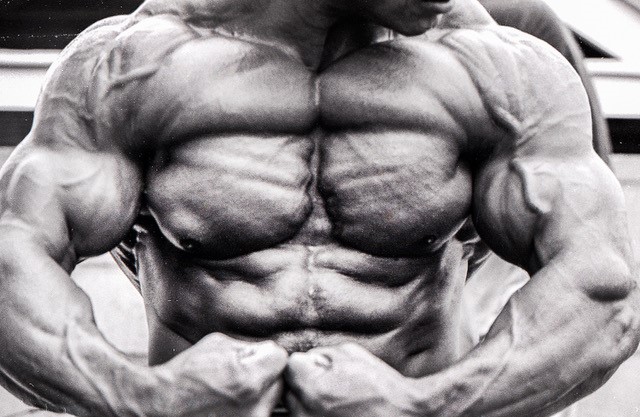 Moreover, some individuals are blessed with favorable muscle insertions that allow for greater muscle bellies and symmetry, contributing to a more aesthetically pleasing physique. Bone structure also plays a role in bodybuilding, as wider clavicles and narrower hips can create the illusion of a more tapered waist and broader shoulders, a desirable trait in the sport. Additionally, variations in metabolism and hormonal levels can impact muscle growth, recovery, and overall performance in bodybuilding. We all want to know how hormone levels come into play, such as testosterone and growth hormone; the truth is that these can also impact an individual's ability to build muscle mass and recover from intense training sessions.
Moreover, some individuals are blessed with favorable muscle insertions that allow for greater muscle bellies and symmetry, contributing to a more aesthetically pleasing physique. Bone structure also plays a role in bodybuilding, as wider clavicles and narrower hips can create the illusion of a more tapered waist and broader shoulders, a desirable trait in the sport. Additionally, variations in metabolism and hormonal levels can impact muscle growth, recovery, and overall performance in bodybuilding. We all want to know how hormone levels come into play, such as testosterone and growth hormone; the truth is that these can also impact an individual's ability to build muscle mass and recover from intense training sessions.
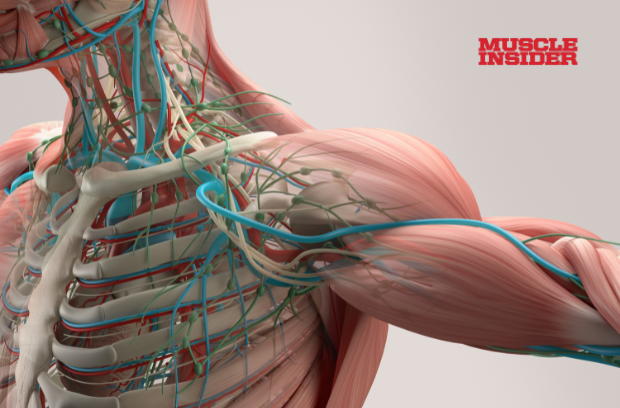 A study by Fajardo et al. (2023) published in the Journal of Movement & Sport Sciences found that genetics and epigenetics play essential roles in muscle hypertrophy, and understanding their interplay can provide valuable insights for athletes, trainers, and researchers in optimizing training strategies and performance outcomes. While the mechanisms and signaling pathways that regulate hypertrophy are known, it remains unclear how much genetics and epigenetics contribute to this process. However, their review identified several regulatory genes associated with muscle hypertrophy. These genes include MSTN, PGC-1α, STARS, and JunB, among others. These genes play a crucial role in controlling signaling pathways and gene networks necessary for muscle development.
A study by Fajardo et al. (2023) published in the Journal of Movement & Sport Sciences found that genetics and epigenetics play essential roles in muscle hypertrophy, and understanding their interplay can provide valuable insights for athletes, trainers, and researchers in optimizing training strategies and performance outcomes. While the mechanisms and signaling pathways that regulate hypertrophy are known, it remains unclear how much genetics and epigenetics contribute to this process. However, their review identified several regulatory genes associated with muscle hypertrophy. These genes include MSTN, PGC-1α, STARS, and JunB, among others. These genes play a crucial role in controlling signaling pathways and gene networks necessary for muscle development.
Genetic polymorphisms (the simultaneous occurrence of two or more genetically determined phenotypes within a specific population) and DNA methylation (an epigenetic modification that affects gene expression) are other factors that contribute to the regulation of muscle hypertrophy-related pathways.
While it is evident that genetics can set certain limits on a person's bodybuilding potential, it is crucial to remember that genetics do not dictate success in the sport. Many successful bodybuilders have overcome genetic limitations through sheer hard work, dedication, and smart training strategies.
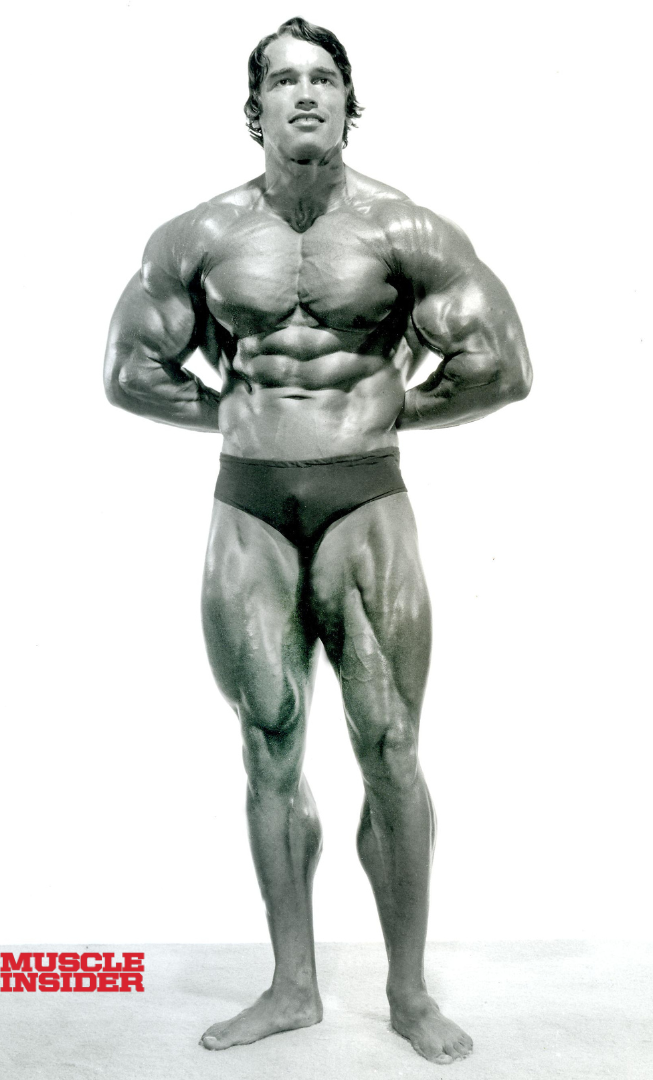 Consider Arnold Schwarzenegger, an unexpected name on this list. Despite his legendary status, he had weaknesses. From a young age, Schwarzenegger was destined to become one of the greatest bodybuilders, thanks to his favorable genetics, particularly in the arms and chest. However, some critics argued that he was top-heavy and lacked well-defined legs and calves (Staten, 2022). Although his leg definition, especially in the calves, was below average, he tirelessly worked to build up those muscle groups. Over time, his calves improved significantly due to rigorous training. Some even speculated that he had calf implants. Schwarzenegger’s unwavering focus and determination drove him to become the best bodybuilder in the world. Despite carrying massive muscle mass (at one point exceeding 250 lbs), he maintained a relatively tight, small waist—a rarity among bodybuilders today. His stage presence remained athletic and graceful during posing.
Consider Arnold Schwarzenegger, an unexpected name on this list. Despite his legendary status, he had weaknesses. From a young age, Schwarzenegger was destined to become one of the greatest bodybuilders, thanks to his favorable genetics, particularly in the arms and chest. However, some critics argued that he was top-heavy and lacked well-defined legs and calves (Staten, 2022). Although his leg definition, especially in the calves, was below average, he tirelessly worked to build up those muscle groups. Over time, his calves improved significantly due to rigorous training. Some even speculated that he had calf implants. Schwarzenegger’s unwavering focus and determination drove him to become the best bodybuilder in the world. Despite carrying massive muscle mass (at one point exceeding 250 lbs), he maintained a relatively tight, small waist—a rarity among bodybuilders today. His stage presence remained athletic and graceful during posing.
Work Ethic and Determination
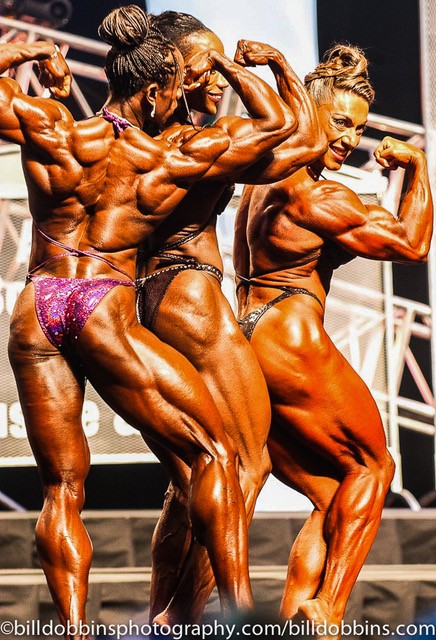 On the other hand, work ethic and dedication are equally essential in maximizing one's potential in bodybuilding. Consistent training, proper nutrition, adequate rest, supplementation, and mindset all play a significant role in enhancing muscle growth and performance. Hard work, discipline, and perseverance are key elements in achieving success in bodybuilding, regardless of one's genetic predispositions.
On the other hand, work ethic and dedication are equally essential in maximizing one's potential in bodybuilding. Consistent training, proper nutrition, adequate rest, supplementation, and mindset all play a significant role in enhancing muscle growth and performance. Hard work, discipline, and perseverance are key elements in achieving success in bodybuilding, regardless of one's genetic predispositions.
We most likely know an expert bodybuilder or have had a coach at some point in time emphasize the importance of work ethic in achieving success in bodybuilding. Arnold Schwarzenegger, a legendary figure in the sport, famously stated, "The last three or four reps is what makes the muscle grow. This area of pain divides a champion from someone who is not a champion." Schwarzenegger's emphasis on pushing past one's limits and embracing the discomfort of training highlights the significance of hard work in bodybuilding.
 Bodybuilding is a sport that demands discipline, commitment, and perseverance. Successful bodybuilders follow strict training regimens, adhere to meticulous nutrition plans, and prioritize recovery and rest. By consistently pushing themselves beyond their limits and striving for continuous improvement, dedicated athletes can transform their bodies and reach their full potential.
Bodybuilding is a sport that demands discipline, commitment, and perseverance. Successful bodybuilders follow strict training regimens, adhere to meticulous nutrition plans, and prioritize recovery and rest. By consistently pushing themselves beyond their limits and striving for continuous improvement, dedicated athletes can transform their bodies and reach their full potential.
Moreover, the mental aspect of bodybuilding cannot be overlooked. The ability to stay motivated, focused, and resilient in the face of obstacles and setbacks is what sets exceptional bodybuilders apart from the rest. A positive mindset, strong work ethic, and unwavering determination can drive individuals to achieve unparalleled success in the sport.
Finding the Balance
While genetics and work ethic both play significant roles in bodybuilding performance, finding the balance between the two is key to maximizing one's potential. Understanding and accepting one's genetic limitations can help individuals set realistic goals and expectations for their bodybuilding journey.
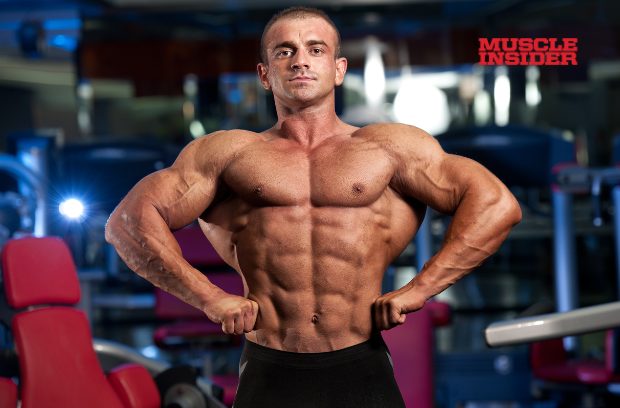 Research studies have shown that genes play a significant role in how our bodies respond to exercise (Chung et al. 2021), and individuals with favorable genetics may have a head start in bodybuilding due to their inherent traits. However, it is the combination of genetics and work ethic that ultimately determines overall success in the sport.
Research studies have shown that genes play a significant role in how our bodies respond to exercise (Chung et al. 2021), and individuals with favorable genetics may have a head start in bodybuilding due to their inherent traits. However, it is the combination of genetics and work ethic that ultimately determines overall success in the sport.
In summary, both genetics and epigenetics play essential roles in muscle hypertrophy, and understanding their interplay can provide valuable insights for athletes, trainers, and researchers in optimizing training strategies and performance outcomes1. While genetics may provide a foundation for muscle growth, consistent and intense training is essential for maximizing muscle mass and strength gains.
By leveraging their genetic strengths and focusing on areas that can be improved through hard work and dedication, bodybuilders can create a strategic approach to training and nutrition that optimizes their performance. Additionally, seeking guidance from knowledgeable coaches, trainers, and experts in the field can provide valuable insights and support in navigating the complexities of genetic potential and work ethic.
Conclusion
The debate between genetics and work ethics in bodybuilding performance is a complex and multifaceted topic. While genetics undoubtedly play a significant role in determining an individual's potential for muscle growth and overall performance, work ethic, dedication, and a relentless pursuit of excellence can override genetic limitations and lead to exceptional results.
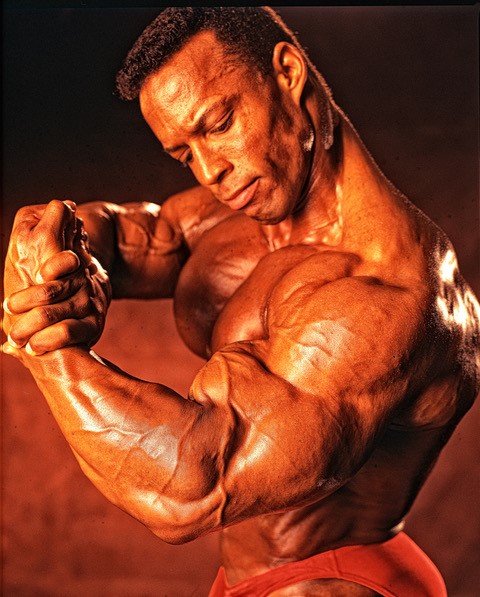 Ultimately, successful bodybuilders are those who strike a balance between genetic predispositions and hard work, harnessing their strengths and addressing their weaknesses through strategic planning, consistent effort, and unwavering commitment to their craft. By embracing the interplay of genetics and work ethic, individuals can unlock their true potential and achieve greatness in the world of bodybuilding. As the saying goes, "Hard work beats talent when talent doesn't work hard."
Ultimately, successful bodybuilders are those who strike a balance between genetic predispositions and hard work, harnessing their strengths and addressing their weaknesses through strategic planning, consistent effort, and unwavering commitment to their craft. By embracing the interplay of genetics and work ethic, individuals can unlock their true potential and achieve greatness in the world of bodybuilding. As the saying goes, "Hard work beats talent when talent doesn't work hard."
References:
Chung, H. C., et al. (2021) Do exercise-associated genes explain phenotypic variance in the three components of fitness? A Systematic review & Meta-analysis. PLOS One. doi.org/10.1101/2021.03.22.436402.
Fajardo Colorado, M. D., Correa Jaramillo, R., & González Arango, L. F. (2023). Influence of genetics and epigenetics on the process of muscle hypertrophy: a systematic review. Movement & Sport Sciences, 121(3), 59-72.
Staten, V. (2022). 4 FAMOUS Bodybuilders Who Overcame "BAD" Genetics. Retrieved from: https://www.youtube.com/watch?v=Hbc4l1a0k7Y

